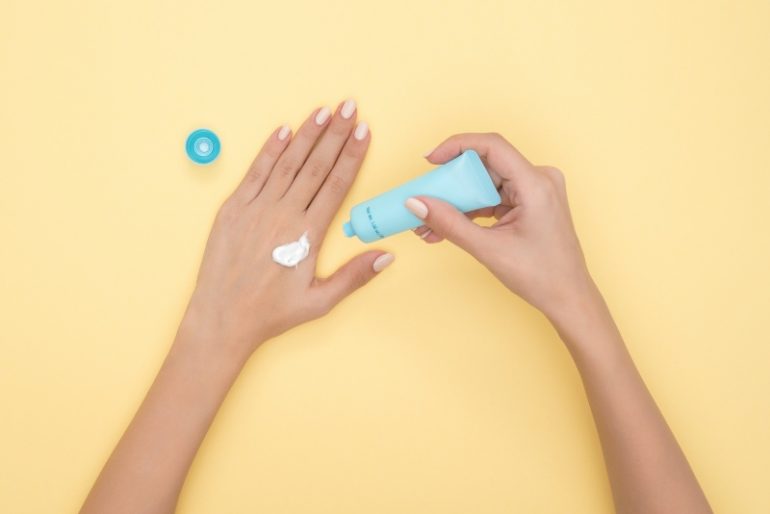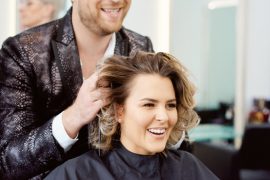Shoshana Eisner, pharmacist and founder of QED Skincare, answers all your burning questions about sensitive skin!
Sensitive skin is one of those phrases that you hear about all the time and you might think you have it, but you’re probably not 100% sure. If you do actually have it, you’re most likely unsure of what causes it and the complexities of caring for it. Is sensitive skin something you’re born with? Can it happen to anyone? Are there different types and degrees of sensitive skin? Then, there is the million dollar question, what should I avoid to prevent making it worse and how do I treat it?
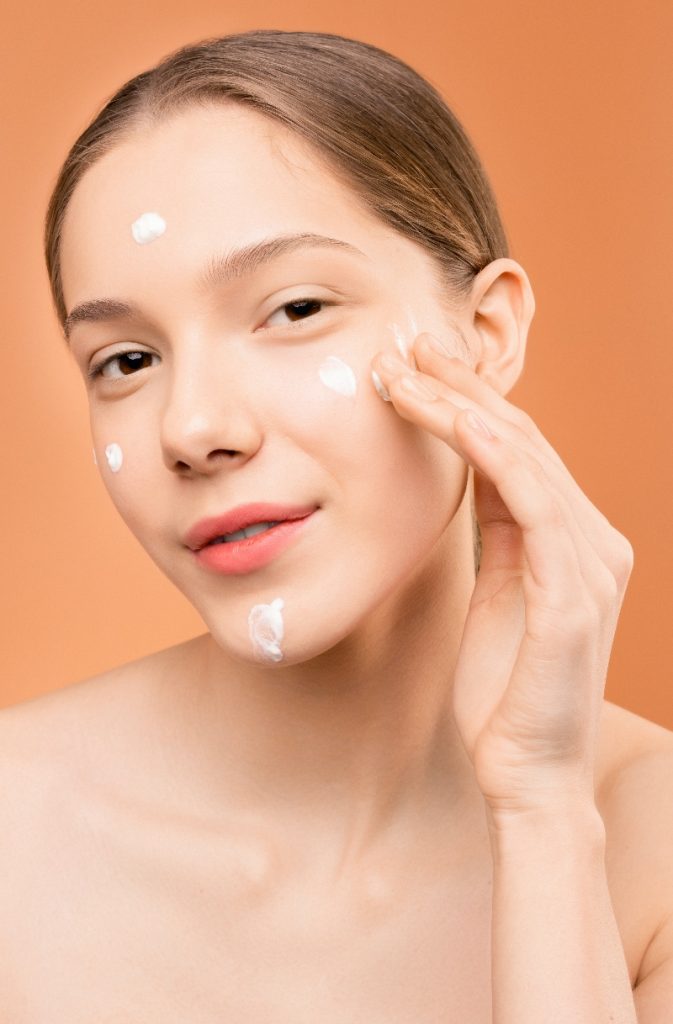
Firstly, I am all about sensitive skin – I have it, understand it, have treated it for over 20 years as a pharmacist and subsequently developed QED Skincare to address the needs of those with sensitive skin. Secondly, sensitive skin is not just a cosmetic issue. Studies show, that itch is harder to ignore than physical pain. PLUS, beyond just being distracting, broken skin (on the hands, in particular) can lead to many hours of lost productivity & even people having to find new careers.
What are the signs of sensitive skin?
If you aren’t sure whether you have sensitive skin, take a look at these common signs below. If you experience any of them, you are likely to have sensitive skin and would certainly benefit from using skincare that provides a little extra comfort and most importantly, improves its resilience.
If your skin…
- Feels tight & uncomfortable
- Is sometimes sore or sensitive to touch
- Is itchy
- Develops a rash
- Flushes easily after a spicy meal or drinking alcohol
- Has patches of redness that may or may not fade
- Has areas of uneven texture, with dryness & flakiness
- Reacts to skincare or other irritants
- Can feel itchy after wearing coarse, synthetic fabrics
- Turns red and dries out after a hot shower or bath
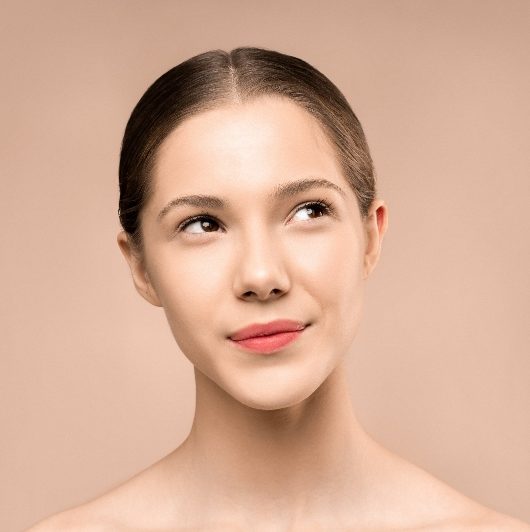
What triggers sensitive skin?
Sensitive skin is caused by nerve endings in the top layer of skin becoming irritated. This occurs, because your skin’s natural barrier function is weakened & overreacts to a stimulus. Some people’s barrier need a lot of support to function well (ie. people with allergies, some skin conditions).
Some common triggers include:
- Frequent changes in temperature
- Cold, harsh weather
- Pollen
- Allergies
- Very hot water
- Lack of sleep
- Hormonal changes
- Stress & late nights
- Dehydration
- Exposure to irritants (ie. harsh chemicals)
- Over-drying your skin with stripping ingredients (Sulphates, over-washing, over-sanitising)
- Sensitive Skin often goes hand in hand with asthma and/or hay fever
What can I do about very sensitive skin?
In addition to avoiding some of the triggers listed above, the 2 most important things you need to do to help treat sensitive skin is:
Break the itch cycle
When your skin becomes red, inflamed & itchy, that is because your skin is releasing a compound called histamine. Horribly, when you scratch, your skin releases more histamine. So it becomes itchier & redder & itchier until you want to divorce your body…. So, if you get a lot of itches, I recommend carrying protection around at all times with you and treating it as soon as it starts.
Here is what I would call the cascade of treatments for sensitive skin flare-ups. When one step doesn’t resolve the situation quickly, you move to the next step. AND by quickly, I mean within a few minutes.
- Step 1: Apply a really rich, soothing, anti-itch emollient to the area. Don’t rub it in too much. I recommend QED Skincare Ultra-sensitive Face Balm for the face area & QED Skincare Ultra-sensitive Body Balm for the body. (otherwise, look for products which contain a lot of rich oils, glycerine or colloidal oatmeal in them)
- Step 2: Apply an appropriate steroid cream on the area (talk to your pharmacist or GP)
- Step 3: Pop a non-sedating antihistamine like Zyrtec or Claratyne
Improve your barrier function
The better your skin’s barrier, the less reactive your skin will be.
Healthier barrier = less itch, less redness, less reactivity. Simple math but what steps can you take to improve your barrier?
- Use the richest possible moisturisers, ALL THE TIME! The oilier & gooier, the better.
- Drench your body in moisturiser immediately after bathing.
- Avoid using heaters, layer up instead.
- Have a humidifier on in your bedroom
- Avoid long showers
- Avoid hot showers
- Minimise hand-washing & always opt for a low-foaming/sulphate free hand wash & shower gels
- Avoid Soap
- Wear gloves when you clean/wash up – ideally with hand cream on underneath
- Avoid synthetic fibres in your clothes, so your skin can breathe.
- Treat hay fever early & regularly
- Stop the itch cycle
- Choose skincare specifically formulated for sensitive skin
- Choose skincare with as few ingredients as possible, as you may not know what your triggers are
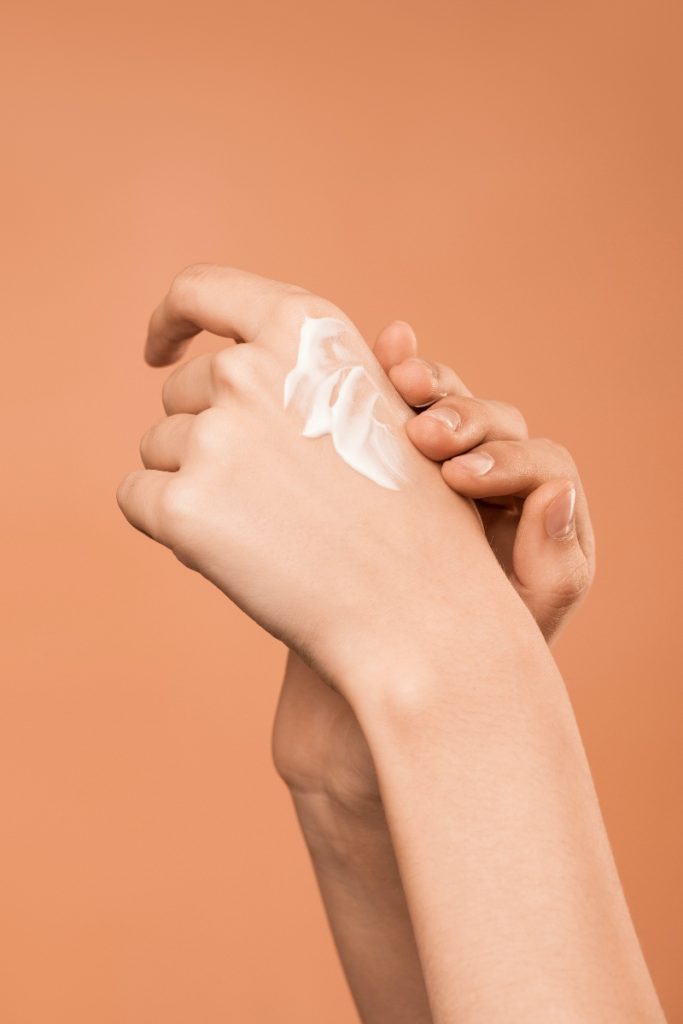
How do you choose the right skincare for sensitive skin?
Skincare that is specifically formulated for sensitive skin is the best option to help improve your skins’ barrier function. Go for what is NOT in the products over what IS in the products.
To protect your skin from irritation, it’s essential that you look for the following features in your skincare:
- Super-hydrating/almost oily
- Ingredients that absorb into your skin and build it from within – ie. Shea butter, cocoa butter, jojoba oil, rose hip oil
- Avoid ingredients which sit on the skin, like mineral oil (a kindly name for petrolatum) & lanolin (a kindly name for wool fat, a common allergen in itself)
- Avoid known irritants such as parabens, sulphates, formaldehyde, artificial fragrance & colours
About QED Skincare:
Shoshana Eisner is a Pharmacist and Founder of QED Skincare.
The QED Ultra-Sensitive Skin range is specifically formulated to help those with the most sensitive of skin types including:
- -Eczema
- -Psoriasis
- -Dermatitis
- -Sjogren’s Syndrome
- Extremely dry & flakey dry skin

